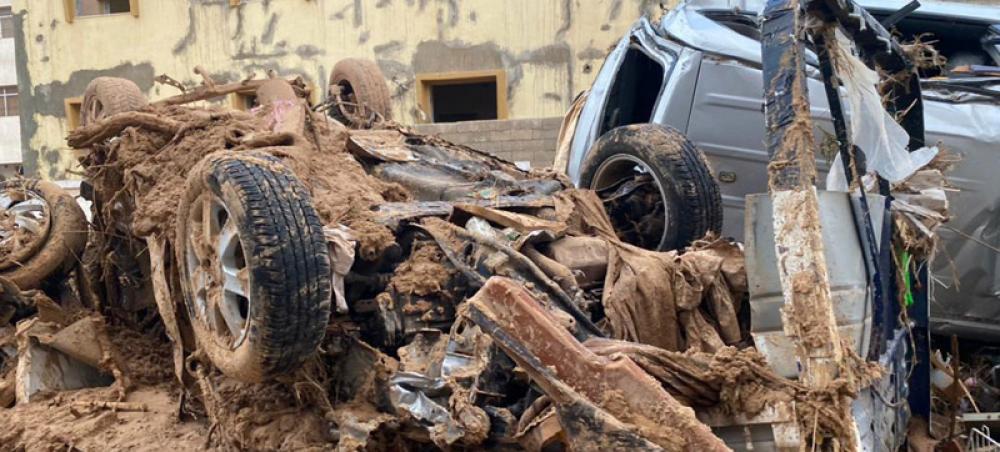Just Earth News | @justearthnews | 15 Sep 2023

Image: WHO
The UN system is providing aid to areas in eastern Libya impacted by the weekend floods and a disaster assessment team has been deployed to support government response and relief operations, the UN said on Wednesday.
More than 5,000 people have reportedly died, many of them residents of Derna, which was struck by a torrent of water from two dams which burst, sweeping away whole neighbourhoods of the port city.
“Search and rescue operations are actively underway, led by national agencies, military, the Libyan Red Crescent and local volunteers”, said a statement released by the UN Spokesperson’s Office.
Supporting role
The Resident and Humanitarian Coordinator in Libya, Georgette Gagnon, has tasked an emergency response team to support local authorities and partners.
A team from the Geneva-based UN Disaster Assessment and Coordination (UNDAC) operation, part of humanitarian coordination office OCHA, has been deployed to support response and relief operations.
Emergency Relief Coordinator, Martin Griffiths, announced on Tuesday an initial allocation of $10 million from the Central Emergency Response Fund (CERF) to support those affected by the floods.
Oil-rich Libya has in effect been split since 2014 between an interim, internationally recognized Government operating from the capital, Tripoli, and another one in the east, with many armed groups also operating on its territory. The two sides signed a ceasefire in 2020, but political rivalries continue.
‘Brutally swept away’
The UN human rights chief, Volker Türk, issued a statement on Wednesday saying he was profoundly distressed “that thousands of lives have been so brutally swept away in eastern Libya, and so many more people have lost their loved ones, their homes, their communities, and their access to basic needs.”
He called on all Libyan political actors to overcome the deadlock preventing national unity and division, “and to act collectively in ensuring access to relief.”
“This is a time for unity of purpose: all those affected must receive support, without regard for any affiliations. It is important that particular care is taken to ensure protection of groups in vulnerable situations – who are rendered even more at risk in the aftermath of such a disaster.”
Help ‘any way we can’
Speaking to reporters earlier at UN Headquarters in New York, Secretary-General António Guterres said that the UN was ready to “work in any and every way we can with partners to help get emergency assistance to those who so desperately need it.”
The UN World Food Programme (WFP) said on Wednesday it had despatched its first shipment of food assistance to Libya in the wake of the floods which have left more than 10,000 injured or missing.
In coming days, WFP aims to reach more than 5,000 families whose lives were turned upside down when the dams burst after being hammered by Hurricane Daniel over the weekend.
‘Out of control’
“Entire neighborhoods in Derna disappeared, along with their residents, swept away by water after the two aging structures collapsed, creating a catastrophic situation that is out of control”, said WFP.
Derna is the worst-affected city while Albayda, Almarj, Benghazi, Bayada, Al Owailia, Taknes (AlJabal Al Akhdar), Talmeitha, Tobruk, Toukra, Shahhat, and Sousa were also hit.
On Tuesday, WFP commenced its response with cooperating partner LibAid, distributing rations – that include sugar, pasta, rice, wheat flour, tomato paste, white beans and cooking oil – to hundreds of families across 16 locations in the capital of the eastern administration, Benghazi.
More than 2,000 storm-affected and displaced people who fled from Derna to Benghazi have already received food and distributions are ongoing.
WFP already assists more than 52,000 people in with in-kind food and cash grants in Libya, including internally displaced people, returnees, and migrants in urban areas.